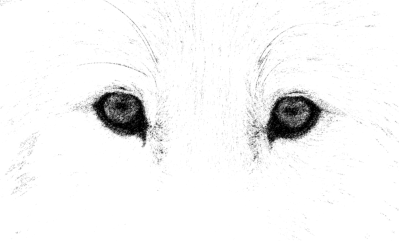
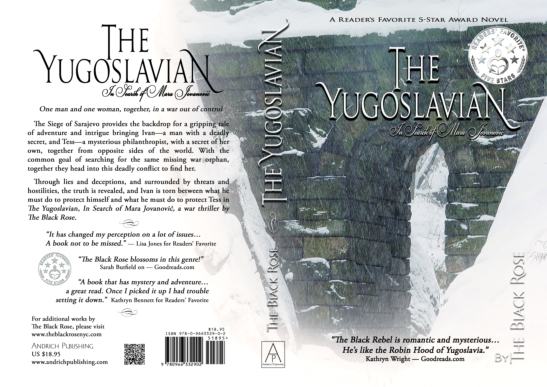
Creating
the
right
cover
for
The
Yugoslavian
was
a
challenge
I
began
back
in
1995.
I
tried
postcard-like
images,
scoured
the
Internet
for
ones
to
purchase,
and
even
attempted
a
plain
cover—none
quite
fit.
When
I
set
a
deadline
in
2012
to
finally
publish
the
book,
I
resumed
the
search.
The
perfect
cover
had
to
be
a
photograph
that
captured
the
novel’s
mood.
Unlike
The
Killing
Game
Series,
which
has
a
darker
tone,
this
story
always
evoked shades of gray and blue.
I
searched
online
again,
noticing
how
the
years
had
expanded
what
stock
photo
companies
offered.
Still,
nothing
felt
right.
As
a
photographer,
I
nearly
always
have
a
camera
on
hand.
In
the
mornings,
when
I’m
out
in
the
yard
with
my
pup,
I’m
usually
pho
-
tographing
her
(last
I
checked,
about
eight
years
ago,
I
had
over
17,000
photos
of
her—I
can
only
imagine
how
many
more
I’ve
taken since).
The
view
from
my
yard
is
spectacular,
especially
in
winter.
I
had
spent
a
lot
of
time
photographing
the
woods,
drawn
to
the
trees
across
the
lake,
roughly
half
a
mile
away.
During
the
winter
of
2013,
I
dedicated
several
days
to
capturing
these
scenes.
After
each
session,
I
transferred
the
images
to
my
computer
without
reviewing
them
closely;
I
could
easily
take
a
hundred
or
more
in
one sitting.
With
spring's
arrival,
I
thought
a
cemetery
might
offer
the
at
-
mosphere
I
was
searching
for.
I
reached
out
to
two
of
the
larger
historic
cemeteries
just
outside
Manhattan,
received
permission
to
photograph
there,
and
found
several
statues
that
seemed
promising.
Despite
capturing
some
fantastic
shots,
none
of
them
quite fit for the cover.
My
typical
approach
to
photography
involves
shooting
a
series
of
the
same
subject,
adjusting
lighting,
angles,
and
other
vari
-
ables.
I
often
do
what
I
call
a
"sweep,"
using
the
motor
drive
at
high
speed
to
reduce
blur
when
I’m
not
using
a
tripod.
This
tech
-
nique
sometimes
yields
hundreds
of
photos
to
sift
through.
It’s
time-consuming,
but
worthwhile,
as
each
millisecond
brings
sub
-
tle
changes
in
light
and
atmosphere.
Sometimes,
the
essence
I’m
trying
to
capture
appears
in
only
a
single
shot—fleeting,
yet
perfect.
I
went
back
to
review
all
the
winter
shots
I
had
taken,
finding
three
photographs
captured
in
succession
on
February
11,
2013,
of
different
spots
across
the
lake.
The
first
shot
was
taken
at 1:00 pm, the second at 1:02 pm, and the third at 1:03 pm.
Nothing
was
taken
in
between—
each
time
lapse
marked
my
move
to
a
new
vantage
point.
Three
distinct
scenes,
each
filled
with
a
haunting
beauty
and
se
-
crecy.
I
aimed
to
capture
the
trees
across
the
lake
in
a
way
that
suggested
mystery,
as
if
seen
through
binoculars
or
a
rifle
scope—someone
hidden,
some
-
one
who
doesn’t
want
to
be
seen.
The choice was clear.
After
adjusting
the
hues
to
bring
out
a
moody,
gray
undertone,
the
final
image
was
exactly
what
I’d
envisioned.
With
the
hue
adjusted,
the
light
-
ness
just
right,
and
the
text
added,
the
front
cover
was
per
-
fectly
aligned
with
the
story.
The
final
product
is
now
visible
on
the
left.
I’m
often
chided
for
downplaying
my
own
name.
But
for
me,
the
story
is
about
the
characters,
even
if
my
heart
and
soul
are
behind
each
word.
Writing
is
an
art,
and
once
your
story
is
on
paper,
finding
the
perfect
image
to
capture
what
your
heart
has
expressed
can
be
the
most
challenging
part
of
the
entire
process.
They
say,
“You
can’t
judge
a
book by its cover.” And they’re right.
Just
as
you
can’t
judge
a
book
by
its
title
(another
thing
I
hear
about
from
people).
Yet
it
is
true.
“A
picture
is
worth
a
thousand
words.”
And
even
if
everyone
doesn’t
see
the
wintery
mystery
of
someone
spying
through
the
trees
in
this
cover,
my
heart
is
con
-
tent in knowing no other image could take its place.
In
the
end,
the
perfect
cover
photograph
was
right
in
my
backyard…
All was well until…
Designed and then Redesigned
So,
yes,
I
thought
I
had
the
perfect
image—
until
I
stumbled
upon
one
of
the
photographs
I
had
originally
consi-dered
for
this
cover.
It
was
a
snowy
scene
from
an
old
arch
in
The
Ramble
in
Central
Park,
New
York.
Every
time
I
walk
past
it,
I
capture
it.
I
have
many
photos
of
this
old
stone
structure,
but
this
par
-
ticular
shot,
taken
during
a
snowstorm
while
out
with
my
pup
Kuma,
stood
out.
There
she
is,
scouting
the
way
for
me.
It’s
a
beautiful
spot,
and
with
the
storyline
set
in
historic
Sarajevo,
the
simple
stones
against
the
snowy
backdrop
felt
fitting.
However,
the
shot
needed
substantial
manipula
-
tion
to
bring
out
the
frosty
cold
-
ness
I
envisioned.
The
date
was
April
16,
2005,
at
8:08
p.m.,
and
this is where it all began.
First,
I
brightened
the
shot
while
preserving
as
much
detail
as
possible.
Then,
I
resized
it
to
the
cover’s
dimensions
of
5.5x8.5,
leaving
some
space
on
the
left,
so
I
cropped
and
ex
-
tended
the
image.
To
achieve
the
desired
snowy
effect,
I
added
several
layers
of
a
light,
white
gradient
overlay.
After
careful
ad
-
justments, I arrived at the final look below.
I
love
photographs
that
wrap
around
a
book.
It
makes
the
cover
more
intriguing
and
inviting
for
readers,
transforming
the
book
into
a
piece
of
art
rather
than
just
literature.
After
experiment
-
ing
with
various
font
styles
and
sizes,
I
arrived
at
a
final
design
that
captured
the
story’s
mood
with
subtle
nuances
and
an
invit
-
ing
passageway,
sparking
the
reader's
curiosity
about
what
lies
just beyond the stone entrance.
Perhaps
a
meaningful
exercise
is
to
reflect
on
this
question:
If
you
were
to
design
a
book
cover
to
represent
your
life,
what
would
it
look
like?
Where
would
you
begin
searching
for
the
per
-
fect
image,
and
how
would
you
adapt
it
to
reflect
your
true
feel
-
ings,
thoughts,
and
beliefs?
How
might
that
image
evolve
over
time
as
you
grow,
learn,
and
deepen
your
understanding
of
your
-
self and the world around you?
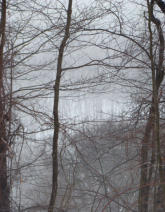
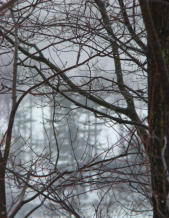
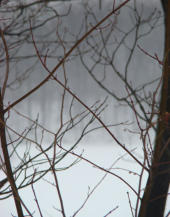
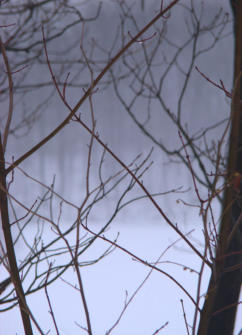
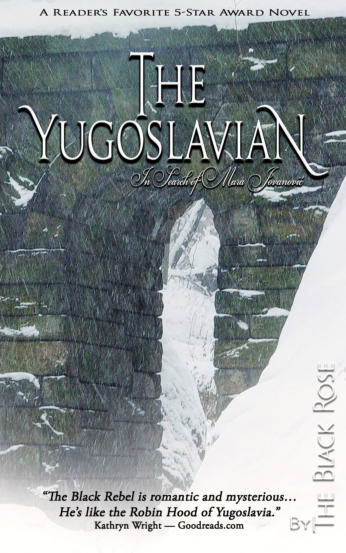
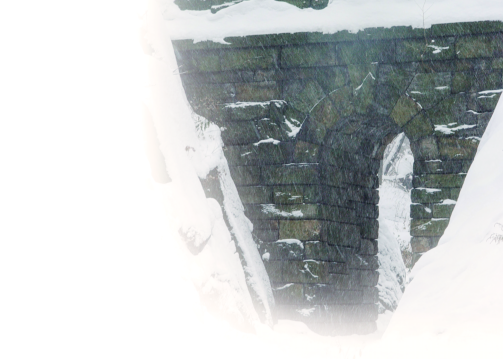
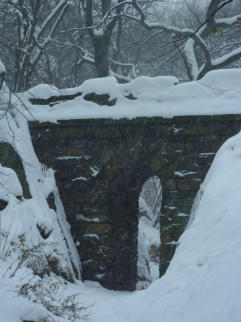




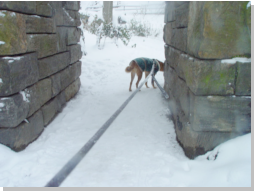
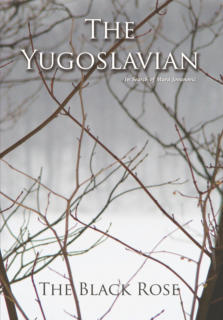


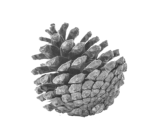
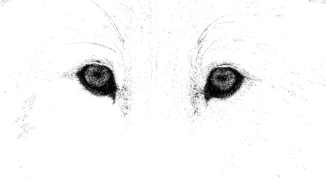
Creating
the
right
cover
for
The
Yugoslavian
was
a
challenge
I
began
back
in
1995.
I
tried
postcard-like
images,
scoured
the
Internet
for
ones
to
purchase,
and
even
attempted
a
plain
cover—none
quite
fit.
When
I
set
a
deadline
in
2012
to
finally
publish
the
book,
I
resumed
the
search.
The
perfect
cover
had
to
be
a
photo
-
graph
that
captured
the
novel’s
mood.
Unlike
The
Killing
Game
Series,
which
has
a
darker
tone,
this
story
always
evoked
shades
of
gray
and blue.
I
searched
online
again,
noticing
how
the
years
had
expanded
what
stock
photo
companies
of
-
fered.
Still,
nothing
felt
right.
As
a
photographer,
I
nearly
always
have
a
camera
on
hand.
In
the
mornings,
when
I’m
out
in
the
yard
with
my
pup,
I’m
usually
photographing
her
(last
I
checked,
about
eight
years
ago,
I
had
over
17,000
photos
of
her—I
can
only
imagine
how
many
more
I’ve
taken since).
The
view
from
my
yard
is
spectacular,
especially
in
winter.
I
had
spent
a
lot
of
time
photographing
the
woods,
drawn
to
the
trees
across
the
lake,
roughly
half
a
mile
away.
During
the
winter
of
2013,
I
dedicated
several
days
to
capturing
these
scenes.
After
each
session,
I
transferred
the
images
to
my
computer
without
reviewing
them
closely;
I
could
easily
take
a
hundred
or
more in one sitting.
With
spring's
arrival,
I
thought
a
cemetery
might
offer
the
atmosphere
I
was
searching
for.
I
reached
out
to
two
of
the
larger
historic
ceme
-
teries
just
outside
Manhattan,
received
permis
-
sion
to
photograph
there,
and
found
several
statues
that
seemed
promising.
Despite
captur
-
ing
some
fantastic
shots,
none
of
them
quite
fit
for the cover.
My
typical
approach
to
photography
involves
shooting
a
series
of
the
same
subject,
adjusting
lighting,
angles,
and
other
variables.
I
often
do
what
I
call
a
"sweep,"
using
the
motor
drive
at
high
speed
to
reduce
blur
when
I’m
not
using
a
tripod.
This
technique
sometimes
yields
hun
-
dreds
of
photos
to
sift
through.
It’s
time-con
-
suming,
but
worthwhile,
as
each
millisecond
brings
subtle
changes
in
light
and
atmosphere.
Some-times,
the
essence
I’m
trying
to
capture
appears
in
only
a
single
shot—fleeting,
yet
perfect.
I
went
back
to
review
all
the
winter
shots
I
had
taken,
finding
three
photographs
captured
in
succession
on
February
11,
2013,
of
different
spots
across
the
lake.
The
first
shot
was
taken
at
1:00
pm,
the
second
at
1:02
pm,
and
the
third
at
1:03 pm.
Nothing
was
taken
in
between—each
time
lapse
marked
my
move
to
a
new
vantage
point.
Three
distinct
scenes,
each
filled
with
a
haunting
beauty
and
secrecy.
I
aimed
to
capture
the
trees
across
the
lake
in
a
way
that
suggested
mystery,
as
if
seen
through
binoculars
or
a
rifle
scope—
someone
hidden,
someone
who
doesn’t
want
to
be seen. The choice was clear.
After
adjusting
the
hues
to
bring
out
a
moody,
gray
undertone,
the
final
image
was
exactly
what I’d envisioned.
With
the
hue
adjusted,
the
lightness
just
right,
and
the
text
added,
the
front
cover
was
per
-
fectly
aligned
with
the
story.
The
final
product
is
now visible on the left.
I’m
often
chided
for
downplaying
my
own
name.
But
for
me,
the
story
is
about
the
characters,
even
if
my
heart
and
soul
are
behind
each
word.
Writing
is
an
art,
and
once
your
story
is
on
paper,
finding
the
per
-
fect
image
to
capture
what
your
heart
has
ex
-
pressed
can
be
the
most
challenging
part
of
the
entire
process.
They
say,
“You
can’t
judge
a
book
by
its
cover.”
And
they’re
right.
Just
as
you
can’t
judge
a
book
by
its
title
(another
thing
I
hear
about
from
people).
Yet
it
is
true.
“A
picture
is
worth
a
thousand
words.”
And
even
if
every
-
one
doesn’t
see
the
win
-
tery
mystery
of
someone
spying
through
the
trees
in
this
cover,
my
heart
is
content
in
knowing
no
other image could take its place.
In
the
end,
the
perfect
cover
photograph
was
right in my backyard…
All was well until…
Designed and then Redesigned
So,
yes,
I
thought
I
had
the
perfect
image—
until
I
stumbled
upon
one
of
the
photographs
I
had
originally
considered
for
this
cover.
It
was
a
snowy
scene
from
an
old
arch
in
The
Ramble
in
Central
Park,
New
York.
Every
time
I
walk
past
it,
I
capture
it.
I
have
many
photos
of
this
old
stone
structure,
but
this
particular
shot,
taken
during
a
snow
-
storm
while
out
with
my
pup
Kuma,
stood
out.
There
she
is,
scout
-
ing the way for me.
It’s
a
beautiful
spot,
and
with
the
storyline
set
in
historic
Sarajevo,
the
simple
stones
against
the
snowy
backdrop
felt
fitting.
However,
the
shot
needed
substantial
manipulation
to
bring
out
the
frosty
coldness
I
envisioned.
The
date
was
April
16,
2005,
at
8:08 p.m., and this is where it all began.
First,
I
brightened
the
shot
while
preserving
as
much
detail
as
possible.
Then,
I
resized
it
to
the
cover’s
dimensions
of
5.5x8.5,
leaving
some
space
on
the
left,
so
I
cropped
and
extended
the
image.
To
achieve
the
desired
snowy
effect,
I
added
several
layers
of
a
light,
white
gradient
overlay.
After
careful
adjustments,
I
arrived
at
the final look below.
I
love
photographs
that
wrap
around
a
book.
It
makes
the
cover
more
intriguing
and
inviting
for
readers,
transforming
the
book
into
a
piece
of
art
rather
than
just
literature.
After
experiment
-
ing
with
various
font
styles
and
sizes,
I
arrived
at
a
final
design
that
captured
the
story’s
mood
with
subtle
nuances
and
an
inviting
passageway,
sparking
the
reader's
curiosity
about
what
lies
just beyond the stone entrance.
Perhaps
a
meaningful
exercise
is
to
reflect
on
this
question:
If
you
were
to
design
a
book
cover
to
represent
your
life,
what
would
it
look
like?
Where
would
you
begin
searching
for
the
per
-
fect
image,
and
how
would
you
adapt
it
to
re
-
flect
your
true
feelings,
thoughts,
and
beliefs?
How
might
that
image
evolve
over
time
as
you
grow,
learn,
and
deepen
your
understanding
of
yourself and the world around you?
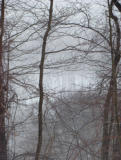
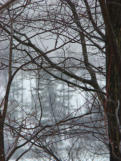
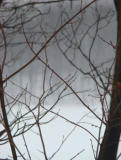
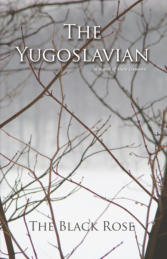
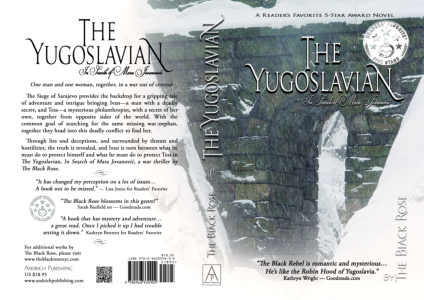

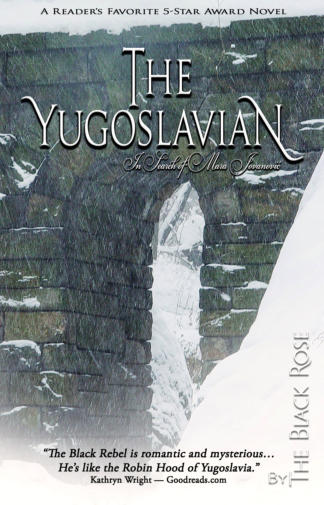
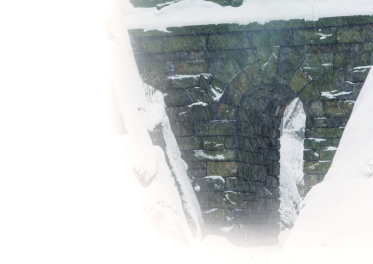
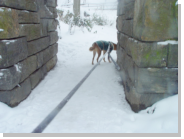
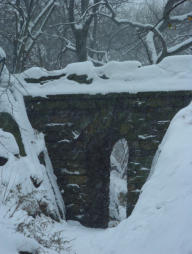







- Home
- Prologue
- The Stories
- Narratives
- Previews
- The Killing Game Series
- The Killingi Game
- A Shark in Murky Waters
- The Chase
- Time - A Precious Comodity
- The Final Hour
- When Power isn't Enough
- Ives' Sorrow - The Lost Days
- Shattered Hearts - The Last Hope
- Unrequited - Eichel & Allina
- The Heroine behind the Hero
- Let the Games Begin - The Lesser Evil
- The First Move Teaser
- The First Move Ink
- The Yugoslavian Series
- Why Backstory Matters
- The Killing Game Series
- Visual Essays
- Soundtracks
- Podcasts
- Previews
- Behind the Scenes (Privé)




















